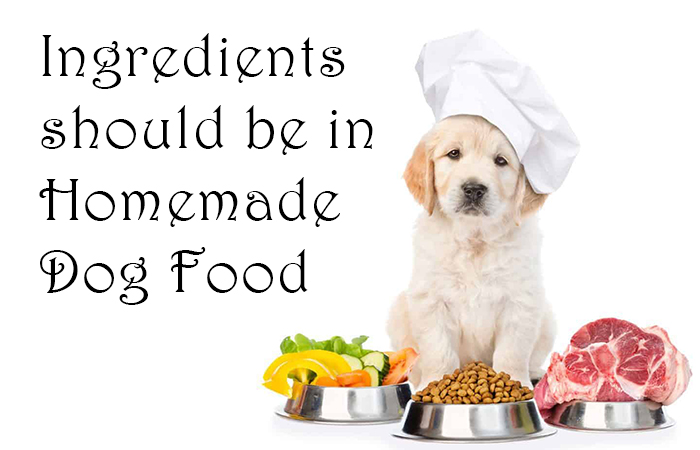
As responsible pet owners, ensuring the well-being of our furry companions is paramount. Just like humans, dogs require a balanced and nutritious diet to thrive. While commercial dog foods offer convenience, an increasing number of pet owners are turning to homemade dog food as a way to provide more control over their pets' nutrition. However, crafting a well-rounded homemade dog food requires a careful selection of ingredients to meet your pet's dietary needs. In this article, we'll explore the essential ingredients that should be included in homemade dog food recipes to keep your canine companion healthy and happy.
1. High-Quality Protein Sources
Protein is a fundamental building block for dogs, essential for maintaining muscle mass, repairing tissues, and supporting overall growth. Opt for lean sources of protein such as chicken, turkey, beef, fish, and eggs. These sources provide the necessary amino acids that contribute to your dog's overall health.
2. Whole Grains
Whole grains offer a valuable source of carbohydrates, fiber, and energy for dogs. Options like brown rice, quinoa, oats, and barley are easily digestible and provide a steady release of energy. Whole grains also contribute to digestive health and help maintain stable blood sugar levels.
3. Healthy Fats
Fats are crucial for maintaining a dog's skin and coat health, as well as supporting various bodily functions. Include healthy fat sources like salmon oil, flaxseed oil, and coconut oil in your homemade dog food recipes. These fats contain omega-3 and omega-6 fatty acids that promote optimal cardiovascular health and a shiny coat.
4. A Rainbow of Vegetables
Vegetables offer a spectrum of vitamins, minerals, and antioxidants that are beneficial for a dog's immune system and overall well-being. Incorporate a variety of vegetables such as carrots, sweet potatoes, peas, spinach, and broccoli. Be sure to cook or finely chop them to aid in digestion and nutrient absorption.
5. Fruits in Moderation
Certain fruits can provide additional nutrients and a touch of natural sweetness to your dog's diet. Blueberries, apples (seedless and coreless), and bananas are popular choices. However, fruits should be given in moderation due to their natural sugars.
6. Calcium and Other Supplements
Calcium is vital for bone health, especially in growing puppies and senior dogs. Ensure you're meeting your dog's calcium needs by including sources like yogurt, cottage cheese, or crushed eggshells. Consult with your veterinarian to determine if any other supplements, such as multivitamins or joint supplements, are necessary based on your dog's individual needs.
7. Avoid Harmful Ingredients
When preparing homemade dog food, there are certain ingredients that should be avoided. These include:
8. Consultation with a Veterinarian
Before embarking on a homemade dog food journey, it's crucial to consult with a veterinarian. Every dog has unique dietary requirements based on factors like age, size, breed, and health conditions. A vet can help you develop a balanced and personalized recipe that ensures your dog receives all the necessary nutrients.
Homemade dog food can be a rewarding endeavor, allowing you to nourish your furry friend with love and care. By incorporating high-quality protein sources, whole grains, healthy fats, a variety of vegetables, and consulting with a veterinarian, you can create nutritious meals that contribute to your dog's overall health and happiness. Remember, a well-balanced homemade diet is an investment in your dog's longevity and quality of life.
Established in 2013, FamilyNeeds.net is connected to your lifestyle and everyday life. Publish reviews of your life, style, fashion and essentials.